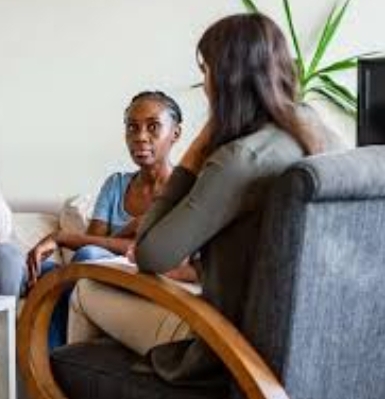Marriage & Divorce
Communication Strategies in Couples Therapy

Last Updated on October 21, 2025 by Joshua Isibor
Navigating the intricacies of a relationship can be challenging. Often, couples find themselves in a maze of miscommunication, misunderstandings, and mismatched expectations – this is where the role of couples therapy becomes pivotal. In Melbourne, renowned for its diverse and dynamic populace, couples counseling is an essential resource for those seeking to strengthen their bonds and enhance their communication skills. Couples counselling in Melbourne offers a unique opportunity to explore and address the complexities of intimate relationships.
The Essence of Effective Communication
Effective communication is the cornerstone of any healthy relationship. It involves more than just talking; it’s about understanding, empathy, and the ability to convey thoughts and feelings in a way that your partner can comprehend and appreciate. In couples therapy, communication strategies are tailored to help partners articulate their needs and listen to each other without judgment.
Active Listening
One of the first strategies often introduced in therapy is active listening – this technique encourages partners to listen attentively, understand what is being said, and respond thoughtfully. Active listening involves nodding, making eye contact, and using verbal acknowledgments like “I understand” to show engagement. This approach helps in validating each other’s feelings and ensures that both partners feel heard.
Non-Verbal Communication
A significant portion of our communication is non-verbal. Couples therapy often focuses on understanding and interpreting body language, facial expressions, and tone of voice. Learning to read these cues can provide deeper insight into your partner’s emotions and can help prevent misunderstandings.
I-Statements
In conflict, it’s easy to resort to blaming or accusing. Couples counselling encourages the use of “I-statements” – a form of expression that focuses on the speaker’s feelings rather than accusing the partner. For example, saying “I feel upset when…” instead of “You make me upset by…” This shift in language can reduce defensiveness and promote a more constructive dialogue.
Empathy and Understanding
Empathy is the ability to understand and share the feelings of another. In therapy, couples are guided to put themselves in their partner’s shoes – this fosters a deeper understanding and compassion for each other’s experiences and emotions.
Conflict Resolution Skills
Disagreements are inevitable in any relationship, but it’s how couples handle these disagreements that matters. Therapy provides tools for healthy conflict resolution, teaching couples how to express their disagreements respectfully and find mutually satisfying solutions.
Regular Check-Ins
Maintaining an open line of communication is vital. Therapists often encourage couples to have regular check-ins, where they can openly discuss their feelings, concerns, and aspirations. This practice helps in maintaining a healthy communication channel and pre-empting potential issues.
Final Thoughts
Remember, the goal of couples therapy is not to change your partner, but to understand and grow with them. By embracing these communication strategies, couples can build a stronger, more empathetic, and understanding relationship.
Also, Read Fun Ways to Share Your Wedding on Instagram
Originally posted 2024-01-02 17:38:01.

-

 Text Messages2 years ago
Text Messages2 years agoBEST LOVE CONFESSION MESSAGES FOR HER OR HIM
-

 Health4 months ago
Health4 months ago5 Unknown Ways To Maintain Skin Health
-

 Sex Education2 months ago
Sex Education2 months ago10 Simple Hack to Make a Girl Send Her Nudes
-

 Text Messages2 years ago
Text Messages2 years agoHappy Birthday Cousin, wishes and messages
-

 Text Messages2 years ago
Text Messages2 years agoHeart Touching RIP Uncle Quotes
-

 Uncategorized4 months ago
Uncategorized4 months agoHOW TO KISS A BOY FOR THE FIRST TIME
-

 Text Messages2 years ago
Text Messages2 years agoFreaky and Dirty Paragraphs For Him Copy And Paste Yahoo
-

 Text Messages2 years ago
Text Messages2 years agoBest Good Luck Wishes Before and After Surgery, for Family and Friends













